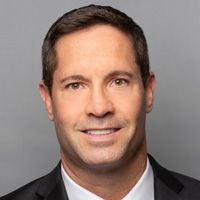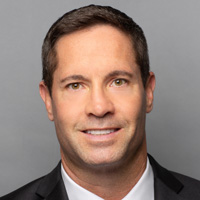Finding a Modern Financial Adviser: 3 Questions to Ask
Today’s challenging economic climate calls for a financial adviser equipped to adapt. Here’s how to see if yours is up to the task.


Profit and prosper with the best of Kiplinger's advice on investing, taxes, retirement, personal finance and much more. Delivered daily. Enter your email in the box and click Sign Me Up.
You are now subscribed
Your newsletter sign-up was successful
Want to add more newsletters?

Delivered daily
Kiplinger Today
Profit and prosper with the best of Kiplinger's advice on investing, taxes, retirement, personal finance and much more delivered daily. Smart money moves start here.

Sent five days a week
Kiplinger A Step Ahead
Get practical help to make better financial decisions in your everyday life, from spending to savings on top deals.

Delivered daily
Kiplinger Closing Bell
Get today's biggest financial and investing headlines delivered to your inbox every day the U.S. stock market is open.

Sent twice a week
Kiplinger Adviser Intel
Financial pros across the country share best practices and fresh tactics to preserve and grow your wealth.

Delivered weekly
Kiplinger Tax Tips
Trim your federal and state tax bills with practical tax-planning and tax-cutting strategies.

Sent twice a week
Kiplinger Retirement Tips
Your twice-a-week guide to planning and enjoying a financially secure and richly rewarding retirement

Sent bimonthly.
Kiplinger Adviser Angle
Insights for advisers, wealth managers and other financial professionals.

Sent twice a week
Kiplinger Investing Weekly
Your twice-a-week roundup of promising stocks, funds, companies and industries you should consider, ones you should avoid, and why.

Sent weekly for six weeks
Kiplinger Invest for Retirement
Your step-by-step six-part series on how to invest for retirement, from devising a successful strategy to exactly which investments to choose.
Whether it’s political unrest, a Black Swan event, a housing crisis or a global pandemic, there are very few “normal” years in the world of finance anymore. In the “post normal economy,” as Barry Ritholtz frames it, financial advisers need to be different than those of yesterday.
Markets are more unpredictable. Volatility has become the norm. Digital asset markets never close. Those are just a few of the elements that have made investing even more challenging. Now, more than ever, it’s important that you have a financial professional on your side who can stop you from making decisions that you might regret. The onset of the pandemic is one example. Nearly all my clients called me wanting to sell out of equities on the exact same day. In the 33 days between February 19 and March 23 the MSCI World Index fell by 34%, and my clients seemingly had reached their breaking point. Did we sell? After a thoughtful discussion the answer is mostly no, and I can tell you that I had many of them thanking me six months later.
My point is that investors’ needs are changing. Financial advisers must continue to adapt and evolve with the individuals and families they serve. While it is also important that your financial adviser is in good standing with the SEC, has high integrity, always puts your best interests first and is an expert when it comes to your financial planning needs, I'd argue that those are table stakes – financial advisers of tomorrow need to be so much more.
From just $107.88 $24.99 for Kiplinger Personal Finance
Become a smarter, better informed investor. Subscribe from just $107.88 $24.99, plus get up to 4 Special Issues

Sign up for Kiplinger’s Free Newsletters
Profit and prosper with the best of expert advice on investing, taxes, retirement, personal finance and more - straight to your e-mail.
Profit and prosper with the best of expert advice - straight to your e-mail.
Below is my list of three questions to ask yourself when deciding if a financial adviser possesses the qualities you should have at your disposal in the post-normal economy:
Are they a personality fit?
It’s imperative that your financial adviser can anticipate your needs and understands how you may react to worldly factors that may impact your portfolio. Your financial adviser should take the time to know you on a personal level, not just your portfolio. Do they understand your lifestyle? Your family dynamics? Having a deeper understanding of who you are will help them stay one step ahead and communicate with you on the proper channels during turbulent times.
One anecdote that can help portray my thinking is a story of a client of mine who was extremely politically oriented. When Barack Obama was re-elected to serve his second term, this client wanted to sell everything and wait it out. I was adamantly against selling out of their portfolio and backed up my advice with historical data. Hindsight is 20/20, and I will be the first to admit that I’m not always right, but in this specific case the market yielded strong returns each of the following four years and the Dow Jones Industrial Average notched 118 new highs. The point being, if I didn’t push back, that client would have missed out on market returns that they could never have made up.
Are they able to build a relationship deeper than the adviser-client dynamic?
It all comes down to trust. Do you feel that your financial adviser is going to always act in your best interest? It goes beyond being a fiduciary; you must feel like your financial adviser deeply understands your personal needs and goals. Do you feel that your financial adviser is your confidant? Your friend? They need to be more than that. You should feel like your financial adviser is an extension of your family.
While I don’t believe that you have to loop in your financial adviser for all of life's financial decisions, it’s important that you see them as part of your “inner circle” and that they are not someone who you speak to quarterly to discuss your portfolio and your financial plan. In today’s 24/7, always-on world, your financial adviser should be someone you are communicating with regularly and you connect with them on a personal level.
Are they able to offer a diversified investment portfolio?
In today's market environment it is extremely important to diversify your portfolio outside of stocks and bonds. In fact, the traditional 60/40 portfolio is dead. If your financial adviser isn’t providing creative strategies to diversify your portfolio and invest in alternative assets, then they aren’t providing their clients with modern financial advice.
Investors need an inflation hedge and an alternative to fixed income and traditional equities.
To truly diversify, and give yourself the opportunity to experience outsized returns, you need to be investing in alternatives, including venture capital, real estate and private equity.
Amid the Ukraine-Russia war and coming off the heels of a global pandemic, it’s impossible to predict the next crisis that will rattle the markets. But there’s one thing for certain – there's nothing “normal” about your financial life. To protect yourself and your hard-earned portfolio, make sure you are working with a financial adviser who possesses the above qualities. If there’s anything to be picky about in life, your financial adviser should be at or near the top of the list.
Profit and prosper with the best of Kiplinger's advice on investing, taxes, retirement, personal finance and much more. Delivered daily. Enter your email in the box and click Sign Me Up.

Tyler Robuck is a managing director–financial adviser at Manhattan West, where he provides tailored wealth management solutions to high-net-worth clients, entertainers and small-business owners. He brings a wealth of experience, knowledge, energy and compassion to help clients achieve their goals. Having worked through myriad market cycles, he prides himself on being a clear and steady voice in periods of growth and volatility. Outside work, Robuck enjoys meditation and is a yogi.
-
 Nasdaq Leads a Rocky Risk-On Rally: Stock Market Today
Nasdaq Leads a Rocky Risk-On Rally: Stock Market TodayAnother worrying bout of late-session weakness couldn't take down the main equity indexes on Wednesday.
-
 Quiz: Do You Know How to Avoid the "Medigap Trap?"
Quiz: Do You Know How to Avoid the "Medigap Trap?"Quiz Test your basic knowledge of the "Medigap Trap" in our quick quiz.
-
 5 Top Tax-Efficient Mutual Funds for Smarter Investing
5 Top Tax-Efficient Mutual Funds for Smarter InvestingMutual funds are many things, but "tax-friendly" usually isn't one of them. These are the exceptions.
-
 Social Security Break-Even Math Is Helpful, But Don't Let It Dictate When You'll File
Social Security Break-Even Math Is Helpful, But Don't Let It Dictate When You'll FileYour Social Security break-even age tells you how long you'd need to live for delaying to pay off, but shouldn't be the sole basis for deciding when to claim.
-
 I'm an Opportunity Zone Pro: This Is How to Deliver Roth-Like Tax-Free Growth (Without Contribution Limits)
I'm an Opportunity Zone Pro: This Is How to Deliver Roth-Like Tax-Free Growth (Without Contribution Limits)Investors who combine Roth IRAs, the gold standard of tax-free savings, with qualified opportunity funds could enjoy decades of tax-free growth.
-
 One of the Most Powerful Wealth-Building Moves a Woman Can Make: A Midcareer Pivot
One of the Most Powerful Wealth-Building Moves a Woman Can Make: A Midcareer PivotIf it feels like you can't sustain what you're doing for the next 20 years, it's time for an honest look at what's draining you and what energizes you.
-
 I'm a Wealth Adviser Obsessed With Mahjong: Here Are 8 Ways It Can Teach Us How to Manage Our Money
I'm a Wealth Adviser Obsessed With Mahjong: Here Are 8 Ways It Can Teach Us How to Manage Our MoneyThis increasingly popular Chinese game can teach us not only how to help manage our money but also how important it is to connect with other people.
-
 Looking for a Financial Book That Won't Put Your Young Adult to Sleep? This One Makes 'Cents'
Looking for a Financial Book That Won't Put Your Young Adult to Sleep? This One Makes 'Cents'"Wealth Your Way" by Cosmo DeStefano offers a highly accessible guide for young adults and their parents on building wealth through simple, consistent habits.
-
 Global Uncertainty Has Investors Running Scared: This Is How Advisers Can Reassure Them
Global Uncertainty Has Investors Running Scared: This Is How Advisers Can Reassure ThemHow can advisers reassure clients nervous about their plans in an increasingly complex and rapidly changing world? This conversational framework provides the key.
-
 I'm a Real Estate Investing Pro: This Is How to Use 1031 Exchanges to Scale Up Your Real Estate Empire
I'm a Real Estate Investing Pro: This Is How to Use 1031 Exchanges to Scale Up Your Real Estate EmpireSmall rental properties can be excellent investments, but you can use 1031 exchanges to transition to commercial real estate for bigger wealth-building.
-
 Should You Jump on the Roth Conversion Bandwagon? A Financial Adviser Weighs In
Should You Jump on the Roth Conversion Bandwagon? A Financial Adviser Weighs InRoth conversions are all the rage, but what works well for one household can cause financial strain for another. This is what you should consider before moving ahead.